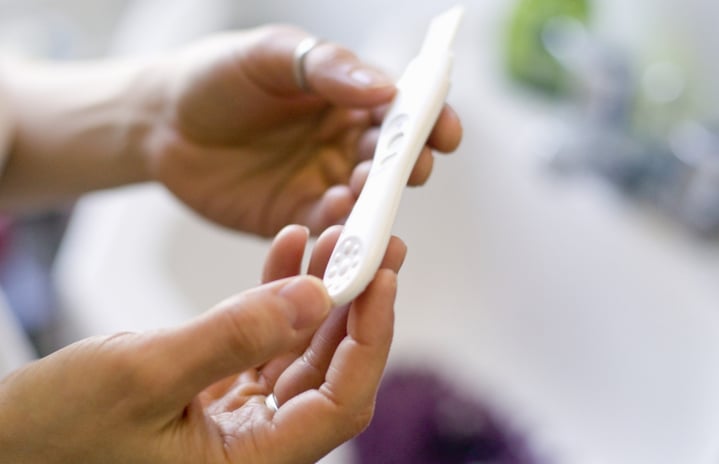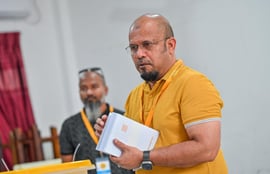United Nations Population Fund (UNFPA) revealed on Sunday that every day, 12 women unintentionally get pregnant, as a result of the ongoing COVID-19 pandemic.
According to the Demographic and Health Survey (DHS), even before the pandemic, only 15 percent of married couples in Maldives used some form of modern contraception – one of the lowest contraceptive prevalence rates anywhere.
UNFPA noted that one in six pregnancies in the island nation were estimated to be unintentional or mistimed, adding that 31.4 percent of woman of reproductive age who wanted to avoid or space pregnancy within the next two years were not using any method of family planning.
"This meant that before COVID-19, there were on average ten unintended pregnancies each day. Projections indicate that the impact of the pandemic has added another two to the daily total", UNFPA's report read.
UNFPA speculated that the main reason for this increase is due to the shutdown of the tourism sector, which forced many men to stay with their families under pandemic restrictions.
Experts state that unintended and unplanned pregnancies can lead to a wider world of harm for a woman and her family, in addition to exerting undue economic stress on an individual couple, compromising the prospects and potential of the children they may already have.
"It can also prompt a woman to seek an unsafe abortion where the practice is illegal, thereby endangering her life", the report added.
Therefore, UNFPA highlighted that it was crucial for everyone to have access to modern contraception and other family planning services.
Noting that sexual and reproductive health supplies and services are often not seen as a priority at a time when health facilities are overwhelmed with COVID-19 cases and essential services are disrupted, UNFPA acknowledged that "high-level political authorities in the Maldives, fortunately, have recognized the importance of prioritizing access to essential reproductive health services during this challenging time".
UNFPA also stated that the COVID-19 crisis presents an opportunity to renew efforts to tackle unintended pregnancies by reducing barriers to services, enhanced demand for family planning, and making modern-day contraception accessible to all and enabling them to use it.
"In Maldives, an investment of just USD 1 million is all it would take to end unmet need for family planning over the next decade", UNFPA stated.
"In order to build back better after the COVID-19 pandemic, countries must invest in family planning. This will in turn help women and couples to decide if and when to start a family, which is not only a fundamental human right, but also a contributing factor to national socio-economic development".
UNFPA further stressed that Maldives, and the world, "will simply not achieve the 2030 Agenda nor overcome the challenges posed by the 2020 pandemic" without ensuring a full range of rights and choices for women and girls.
In addition to unintended pregnancies, UNFPA highlighted that lockdowns imposed to contain the spread of the virus escalated gender-based violence and disrupted efforts to end child marriage and female genital mutilation, both in Maldives and globally.
"We are indeed at a critical juncture in human history, facing an opportunity to prioritize actions to leave no one behind. UNFPA calls upon all countries, including the Maldives, to seize this moment – tackle current challenges – and shape a better post-COVID future for all."
The United Nations Population Fund is the UN’s sexual and reproductive health agency, working towards three transformative results: zero maternal deaths, zero unmet need for family planning, and zero gender-based violence and harmful practices against women and girls.
UNFPA works in more than 150 countries, including the Maldives.




